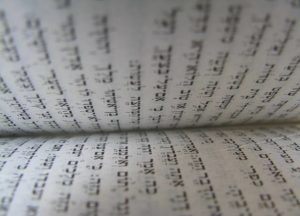Pre-Shabbat Jewish Literary Links

Every Friday My Machberet presents an array of Jewish-interest links, primarily of the literary variety. (more…)

Every Friday My Machberet presents an array of Jewish-interest links, primarily of the literary variety. (more…)
“Chabon expresses discomfort with ‘monocultural places’ with ‘one language, one religion,’ but the application of these words to Judaism is simply astonishing. Virtually every Jewish community in history has developed its own dialect. There are five Judeo-Arabic dialects alone. There is a dizzying variety of Jewish culture and multiform expressions of Jewish religiosity. Chabon, however, has no access to this amazing, diversity because he speaks no Jewish language. One is reminded of Edelshtein’s complaint about American Jewish writers in Cynthia Ozick’s classic story ‘Envy; or Yiddish in America’:
You have to KNOW SOMETHING! At least the difference between a rav and a rebbeh! . . . Their Yiddish! One word here, one word there. Shikseh on one page, putz on the other, and that’s the whole vocabulary!
Chabon writes ‘I ply my craft in English, that most magnificent of creoles,’ as if speaking English, with all its layers and loan words, makes one multilingual all by itself. Perhaps sensing this, he adds: ‘my personal house of language is haunted by the dybbuk of Yiddish.’ Alas, it is a small dybbuk (the one Edelshtein noticed) and not very frightening—or knowledgeable.”
Source: Elli Fischer, “Michael Chabon’s Sacred and Profane Cliché Machine” (Jewish Review of Books)

Every Friday My Machberet presents an array of Jewish-interest links, primarily of the literary variety. (more…)
“There is no other ethno-cultural minority in America targeted with such ferocity from the left and the right. No other group is simultaneously branded as complicit in white supremacy and as false assimilators who threaten white ascendancy. And there is little that is new here; one need only look at late nineteenth-century political discourse to see how Europe’s Jews were simultaneously attacked by the communists as exploiters of the proletariat and by the proto-fascists who warned of the coming racial war between Aryan and Jew. The Zionists who emerged in this context believed that Jewish statehood would end anti-Semitism; that the Jews would henceforth be a ‘normal people’ with a homeland, a flag, a language, and a destiny. They were wrong. If anything, the Jewish state has compounded the ways in which anti-Semitism is articulated today. The Alt-Right’s ‘Jews will not replace us’ and Steven Salaita’s ‘there’s not enough space in the world for both Zionism and Palestinians’ could have been articulated a century ago with little revision.”
Source: Jarrod Tanny, “The Loneliness of the Liberal Zionist” (Forward)

Every Friday My Machberet presents an array of Jewish-interest links, primarily of the literary variety. (more…)